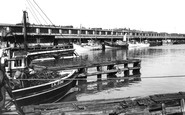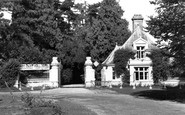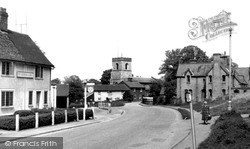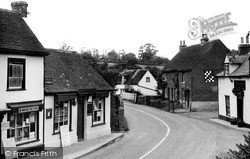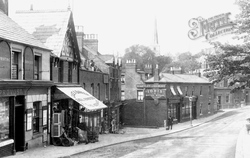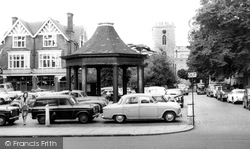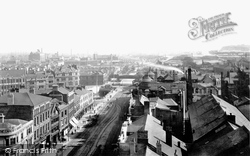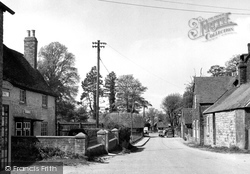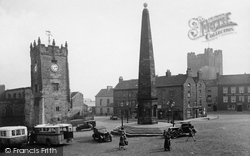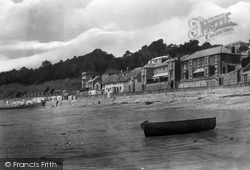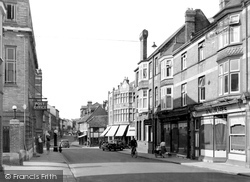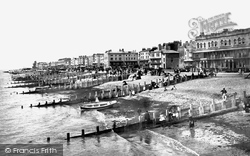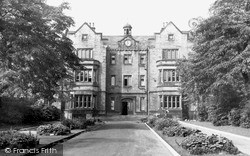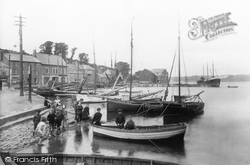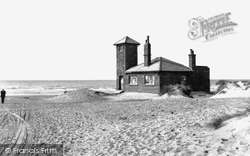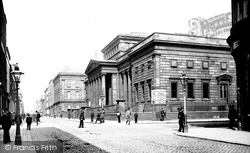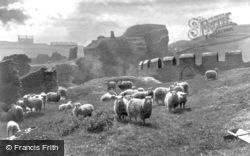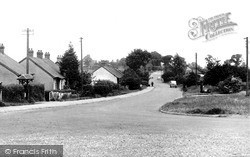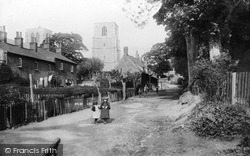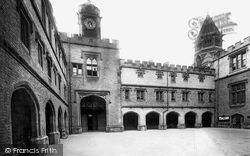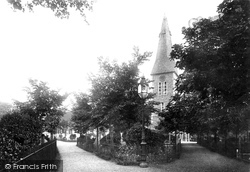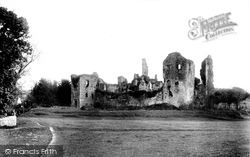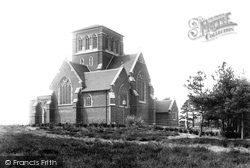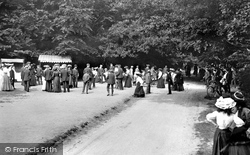Merry Christmas & Happy New Year!
Christmas Deliveries: If you placed an order on or before midday on Friday 19th December for Christmas delivery it was despatched before the Royal Mail or Parcel Force deadline and therefore should be received in time for Christmas. Orders placed after midday on Friday 19th December will be delivered in the New Year.
Please Note: Our offices and factory are now closed until Monday 5th January when we will be pleased to deal with any queries that have arisen during the holiday period.
During the holiday our Gift Cards may still be ordered for any last minute orders and will be sent automatically by email direct to your recipient - see here: Gift Cards
Places
Sorry, no places were found that related to your search.
Photos
Sorry, no photos were found that related to your search.
Maps
7,034 maps found.
Books
163 books found. Showing results 9,433 to 9,456.
Memories
22,913 memories found. Showing results 3,931 to 3,940.
A Tragic Accident
Sometime around the late 1950s my uncle was at the docks and was killed when a tractor was being loaded onto a ship. A cable broke and the tractor fell and killed him. Does anyone have any memories of this?
A memory of Grimsby
Xmas In Hanwell In The Sixties.
Xmas started Xmas eve. Everybody went to the pub at lunchtime and it was serious drinking. I worked in Turriff House on the Geat West Road and the pub was the Kings Arms by Brentford railway station. Around closing ...Read more
A memory of Hanwell by
Painting & Decorating
This is a picture of 'The Lodge', the gate house for the Westcliffe estate. In 1966 it was home to Mr & Mrs Reg Black, he was a painter and decorator at the hall, I worked for him as a trainee. In the summer we did ...Read more
A memory of Hythe by
Prefabs Goodenough Way
I lived in a prefab at 234 Goodenough Way during the 1950's then moved to 102 Ellis Road. Nee Searle.
A memory of Old Coulsdon by
Harry
If it is the same Harry hargreavs I remember I use to knock about with him and he worked at the slaughter house that was on the Corner just where the mancunan way starts now, thats how ne came to be in the butcher game. .I lived in pine ...Read more
A memory of Salford by
The House Beautiful
I remember staying at The House Beautiful in the 1950’s and to me it was not a good experience and has left its mark on me all my life. I was sent there on two occasions by Social Services as my mother was recovering from an ...Read more
A memory of Bournemouth by
Jesse Gausden
HI THERE, MY GREAT GRANDFATHER JESSE GAUSDEN USED TO LIVE AT 51 ALEXANDRA ROAD UCKFIELD UNTIL HIS DEATH IN 1928. HE WAS BURIED IN THE OLD UCKFIELD CEMETERY. I WOULD DEARLY LOVE TO OBTAIN A PHOTO OF THE OLD GENTLEMAN IF ...Read more
A memory of Uckfield by
Dunstaffnage War Years
Like your other contributors I also spent my very early years in Dunstaffnage. Dad had spent the early part of the war from day one as a young Engineer Officer on North Atlantic convoys in the Merchant Navy. When you were lucky to ...Read more
A memory of Oban by
6 To 20
I lived in Woodgrange Avenue Kenton from 1953 till 1967 when i got married and moved to Bletchley where we bought our first house. I remember at the bottom of our road and just around the corner was an Ironmonger shop run by Mr and Mrs ...Read more
A memory of Kenton by
6 To 20
I lived in Woodgrange Avenue Kenton from 1953 till 1967 when i got married and moved to Bletchley where we bought our first house. I remember at the bottom of our road and just around the corner was an Ironmonger shop run by Mr and Mrs ...Read more
A memory of Kenton by
Your search returned a large number of results. Please try to refine your search further.
Captions
9,654 captions found. Showing results 9,433 to 9,456.
The village of Norton dates from the Saxon period. One of the earliest references to Norton is a grant by Offa of Mercia to the monastery at St Albans.
Philpot's General Stores was also used as a slaughterhouse until the early 1950s, when it became the post office.
This photograph was taken from almost exactly the same viewpoint as one to be seen later taken in 1960; it is very much apparent that at this time the village was a thriving, almost self-sufficient commercial
The timber market cross dominates the photograph; to its left is the King's Head with its tile hanging and timbering, a finely-detailed town pub of 1899 by Shoebridge and Rising.
With blissful symmetry the horizon here is occupied by Cardiff Castle - the iconic home of the Bute family, facilitators of the modern city and much of its wealth.
The walls have gone, and cobbles found in the rear garden have been laid at the front. On the right is Manor Farm, now a residence and bed and breakfast.
The castle (right) dominates the centre of this large market town at the entrance to Swaledale.
We look north-westwards at low tide to the cuboid shape of Sundial Cottage, and Library Cottage, which incorporates exotic but re-set older lead-work from France.
This shows the view looking along Reading Road, past the current Post Office and the Shell petrol pump, to the junction with Friday Street and into Duke Street as it heads towards the Market Place.
The characteristic mid-Victorian, family-orientated, open-air seaside culture, which offered a satisfaction of its own, and the town's secure, peaceful ambience is captured in this view of the beach.
These included the workhouses for Ecclesall Union (in Nether Edge) and for Sheffield Union (at Fir Vale), eventually to become Nether Edge Hospital and the Northern General Hospital respectively
The attention of the children and the men is attracted momentarily from the movements of ships and the sea by the novelty of a camera.
The Roman Catholic Church of Our Lady of Mount Carmel and St George in London Road, originally built in 1901, suffered major damage in the war - it was virtually demolished by a landmine.
Seaforth, Bootle, Crosby, Brighton-le-Sands, Blundell Sands and Formby were easier to reach along the firm sand during the wet winter months.
The City Art Gallery building was started in 1825 and completed in 1830 at a cost of £30,000.
FABLED Tintagel is the legendary birthplace of King Arthur.
In the medieval manorial rolls there are references to ancient roads and lanes that carry the same names today.
A quiet lane on the fringes of the town. Washing dries in the breeze in the gardens of plain, mellow cottages.
To the west of Old Quad (above, 72159) lies Old Big School, surmounted by School House dormitories.
HIGH on the hill at the top of Margate High Street is the parish church of St John the Baptist, which has served generations of Margatonians for nearly 1000 years (see 27445).
Coity Castle stands less than two miles to the north-east of Bridgend. There is a legend of how Payn de Turberville acquired Coity following the Norman conquest of Glamorgan.
Whalley means 'the clearing or field by the hill', and we can see how close the hill, known as Whalley Nab, is from our photograph.
Attributed to Pearson and built in the Early English style, this large, red-brick church was built in 1896-7, so it was relatively new in Francis Frith's photograph.
The popularity of Box Hill, once called the White Hill from its chalk bluff and affording a splendid view across the Weald from its summit of just over 600ft, reached an apogee during the late Victorian
Places (0)
Photos (0)
Memories (22913)
Books (163)
Maps (7034)

